MS-ESS2-2
Construct an explanation based on evidence for how geoscience processes have changed Earth's surface at varying time and spatial scales.
-
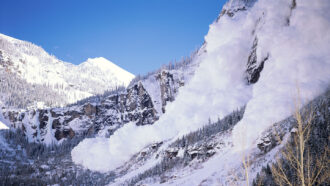 Earth
EarthScientists Say: Avalanche
The word avalanche usually refers to a huge snowslide down a mountain, but it can also be used to describe any large mass of material tumbling downhill.
-
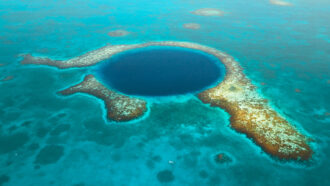
-
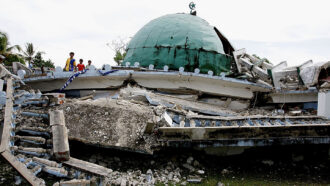 Earth
EarthWhat can ‘silent earthquakes’ teach us about the next Big One?
Earthquakes usually last seconds. But sometimes, they can last days, or even years. Here’s what scientists are learning about these “slow-slip events.”
-
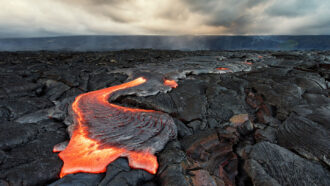 Earth
EarthScientists Say: Magma and lava
The word magma refers to molten rock deep inside Earth. That rock is called lava when it reaches Earth’s surface.
-
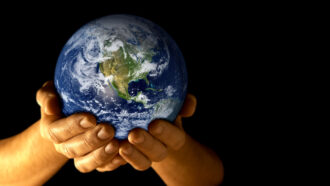 Earth
EarthScientists Say: Anthropocene
Humans are changing the world in profound ways. Some scientists think those changes have launched a new epoch in Earth’s history: the Anthropocene.
-
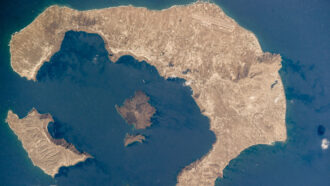 Earth
EarthGreece’s Santorini volcano erupts more when the sea level drops
Data showing this association go back at least 360,000 years.
-
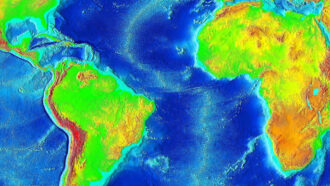 Earth
EarthRock rising from below the Atlantic may drive continents apart
Molten rock rising from the deep mantle at the Mid-Atlantic Ridge may drive plate tectonics there more than had been expected.
-
 Environment
EnvironmentWhat you can do to improve soils
Soils are the life-sustaining structures under our feet. Here are some tips for keeping soils healthy. First rule of thumb: Give more than you take.
-
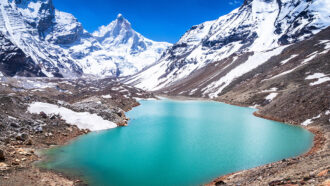 Environment
EnvironmentSurprising long-haul dust and tar are melting high glaciers
Dust and tar blown onto high mountains, like the Himalayas, boost the melting of snow and ice far more than scientists had realized. Here’s why.
By Sid Perkins -
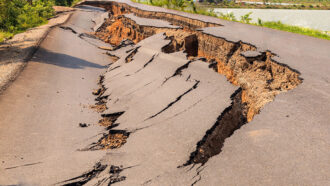 Earth
EarthScientists Say: Earthquake
An earthquake is a sudden and sometimes violent shaking of the ground.
-
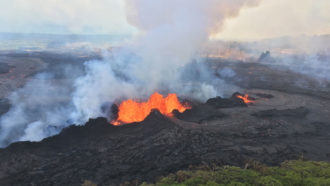 Earth
EarthDid rain put the Kilauea volcano’s lava-making into overdrive?
Scientists share strongly conflicting opinions about why Hawaii’s Kilauea volcano spewed an overabundance of lava in 2018.
By Megan Sever -
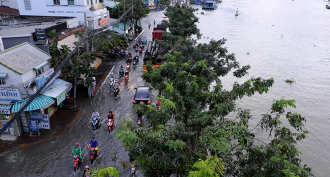 Earth
EarthExplainer: Why sea levels aren’t rising at the same rate globally
The ocean is rising all over the world. The rise seems speedier in some places. What gives? Many factors, it turns out, affect where — and why — the tide gets high.
By Katy Daigle and Carolyn Gramling